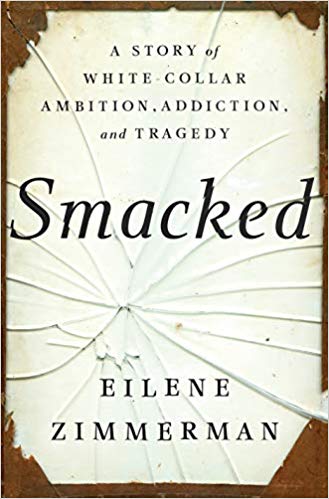

Yona Zeldis McDonough: This must have been a very difficult story to write. What compelled you to take it on?
Eilene Zimmerman: This was a story that was too alarming and inconceivable for me not to share. I had known this person for 30 years, he had been my husband for two decades, he was my friend, he was the father of my kids. He was also a successful, talented, smart, athletic person, perhaps the least likely person I would have ever expected to develop a drug addiction, especially an intravenous drug addiction.
It is certainly not a story I thought I would ever be telling and I struggled with that, with the thought of keeping it to myself forever. But it felt too hard. I needed other people to know this had happened to me and to our family, that this might be happening in their worlds too, in their workplaces. It also felt like no one knew this was happening. This was a man killing himself in plain sight and none of us, not his family, friends or work colleagues recognized what was happening. If I did nothing, what would that mean about his death? If we never talked about what really happened and why, after all this suffering, it would have felt like Peter’s death meant nothing.
And the reaction I got when I first shared the story in the New York Times, which was focused more narrowly on Peter and the legal profession, was an outpouring of readers writing to tell me of their own experiences or talking about their fear of winding up like Peter.
I felt like, maybe this is something we should be talking about [because] and we clearly aren’t talking about it. So this book is for people struggling with their own demons, and is a way of starting those difficult conversations.
YZM: How did your children feel about your writing it?
EZ: It wasn’t an easy decision but ultimately the three of us decided we wanted to be able to make something meaningful out of this tragedy, something that might help others. The book coming out now has brought back a lot of the difficult memories for them, but it’s also helped us heal in many ways, as we talk about it and what it means.
YZM: Why was your ex-husband’s addiction so hard to see?
EZ: I am sure now I had a lot of implicit biases of which I wasn’t aware, that I had an idea of a “drug addict” that did not look like Peter, or someone like Peter. So as I was seeing his symptoms–all of which fit the symptoms of drug addiction–I looked for other reasons to explain it, reasons that fit with my biases.
YZM: Can you talk about the research that you did?
EZ: I interviewed and heard from a lot of white-collar professionals who are struggling with substance use disorders, in recovery and those who just talked about what they see around them, in their various professions. I also traveled the country talking to addiction psychologists, psychiatrists and psychotherapists about what they were seeing at their treatment centers, what they were hearing from clients, and their concerns generally. And I consulted many experts on consumption, competition, corporate culture, happiness, the legal profession. I employed some very 21st-century modes of research, posting queries on big forums frequented by lawyers and one that is visited by technologists, those in the hard sciences and doctors (most frequently), and got them to post about what they were seeing in their respective professions and what was happening for them personally.
YZM: How did you balance the reported portion with the more personal portion?
EZ: I made this my story–what happened to Peter, but from my vantage point, as that’s the only authentic perspective I have. And in the telling of that story, I dropped in reporting that helped clarify the narrative. In the last third of the book, I pivot a bit to talk more about what’s happening in white-collar professions and what seems to be happening among Gen Z workers and young Millennials. So it’s a memoir but its kind of gently pivots near the end to some reporting–putting the events that came before into a greater context.
YZM: Did your Jewish background help with the grief and loss that you felt?
EZ: I think it helped to have some rituals to return to. I always light a Yahrzeit candle for Peter, for example. And now and then I attend Shabbat services at a synagogue here in Manhattan–where I also do some volunteer work–and I’ll say the Kaddish for Mourners at the end of a service. It makes me feel like I’m taking care of Peter in a small way. These rituals, if nothing else, help me to remember him and honor his memory in this way. And that I find very comforting.
Sign up now for a weekly batch of Jewish feminist essays, news, events--and incredible stories and poems from 40 years of Lilith.